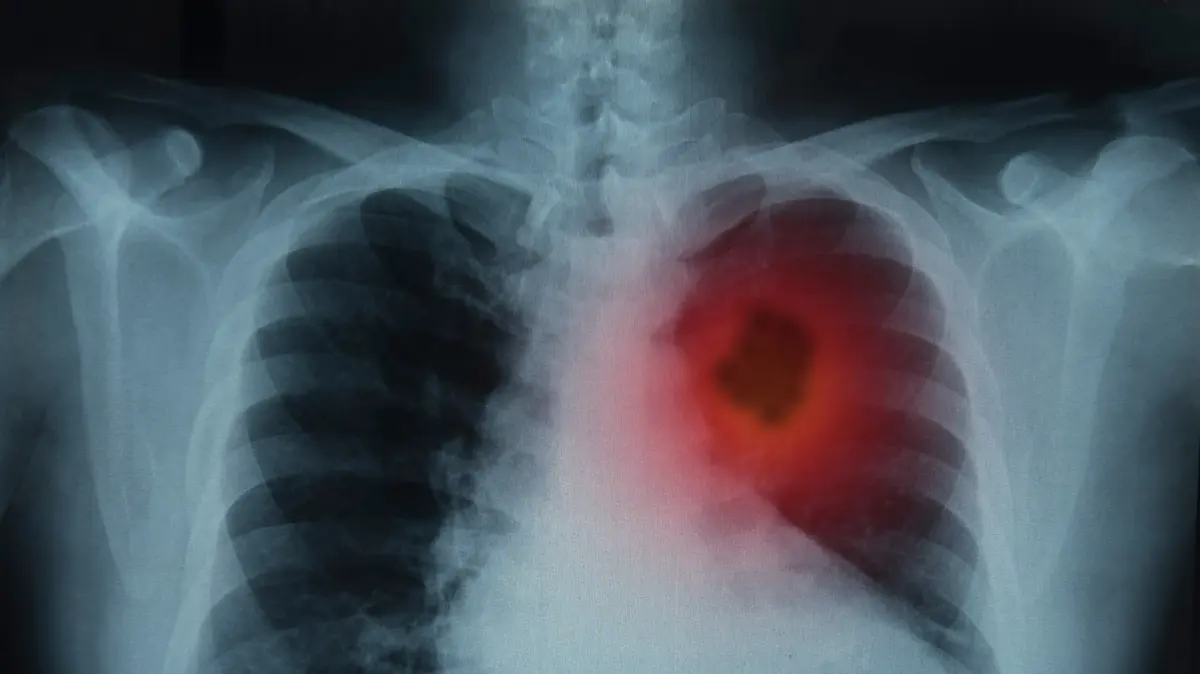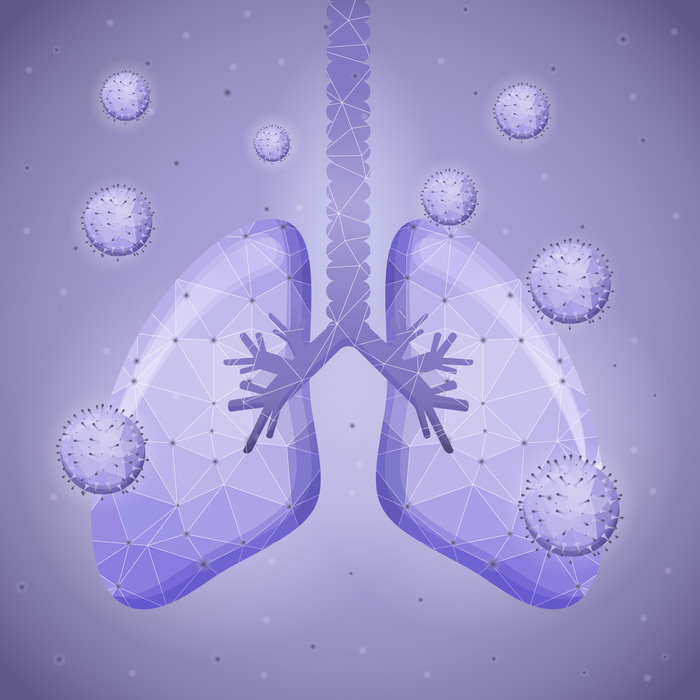Imaging of the lungs of a lung cancer patient (Photo: ShutterStock)
At the beginning of this month, Google introduced its chatbot system - Bard as an answer to the popular ChatGPT.
The field of artificial intelligence has been developing in recent years and now it is also reaching the world of diagnosis of the disease that causes the most mortality in Israel.
In recent days, researchers at the most prestigious universities in the world have tested whether with the help of artificial intelligence software it is possible to estimate a person's chance of getting lung cancer?
A group of experts from Harvard Medical School and MIT University present an artificial intelligence system that can determine each person's chance of getting lung cancer and thus even save lives.
In a study published in the Journal of Clinical Oncology, the experts presented "Sybil", an artificial intelligence system that can estimate a certain person's chance of getting lung cancer in the next six years, even if that person is not included in the known risk groups.
The study's conclusions show that the system has so far been able to predict lung cancer incidence in the coming year with an accuracy of between 86 and 92 percent.
The system looked at a person's probability of getting lung cancer in the next six years and found that Sybil estimated the risk of cancer with an accuracy of between 75 and 81 percent.
The researchers state that this is a significantly higher figure than that provided by the existing diagnostic methods, which may in the future help many doctors and physicians around the world to offer a correct, more accurate and faster treatment envelope to patients.
In the video: Prof. Amir On on lung cancer (edited by: Dina Mahfoutz)
As we know, smoking is a habit that is very harmful to health and dramatically increases the risk of lung cancer.
However, even people who do not smoke regularly and try to lead a healthy lifestyle, are not immune to the disease.
In fact, the data known today show that the incidence of lung cancer among non-smokers is about 20% and the rates are increasing.
The LDCT test (Low-Dose Computed Tomography) is a CT test with a low dose of radiation, which makes it possible to locate the presence of a lung cancer tumor at an early stage.
Today, the test is recommended in Israel mainly for people at increased risk of morbidity - men and women aged 50-75 who currently smoke or have smoked in the past at least 20 pack years (one pack a day for 20 years or 2 packs for ten years).
Studies have found that a low-power CT scan helps detect lung cancer at an early stage and reduce mortality from the disease by up to 24 percent, which is why it was also decided to include the test as part of a pilot by the Ministry of Health in Israel.
However, not the entire population meets the criteria for performing the test and since the symptoms of lung cancer usually appear only in advanced stages, the chances of recovery may be lower if they occur.
More in Walla!
Tens of thousands have already joined a groundbreaking and life-saving medical service
Served on behalf of Shachel
New hope, but the road is still long
"Sybil", the artificial intelligence system presented in the study, allows not only a more accurate prediction of the risk of lung cancer, but also may save additional tests and procedures that may be invasive, dangerous and more expensive.
Such a diagnosis, the experts hope, will also save precious time in this process, which as mentioned can be a factor that dramatically affects the chances of recovery.
Prof. Regina Barzilai, an Israeli-American scientist who participated in the research, said: "I am excited that the many efforts we invested will translate into a potential improvement in the lives of patients, who without the diagnosis could only have been discovered at an advanced stage when the disease is much more difficult and complex."
However, despite the optimism, the researchers also qualified things and mentioned that this is a retrospective study (examining past data) and that prospective studies (on data that will be collected in the future) are also required to verify the success rates of the system.
In addition, it is important to note that the study is largely based on data from Taiwan and the United States.
Even in Israel, the findings arouse optimism and hope among those involved in the field.
"Lung cancer is not just a disease of smokers and it is important that we all be aware of it and its dangers," explains Dr. Shani Sheila, CEO and founder of the Israeli Lung Cancer Association.
In the last year, Dr. Sheila married her husband who contracted lung cancer even though he had never smoked. "Early diagnosis is one of the most significant tools that help save lives and accurately treat the disease.
Personally, it makes me very happy to see leading scientists working together to develop advanced systems that will enable more doctors and patients to fight cancer and win," concluded Dr. Shila.
technology
news
Tags
cancer














